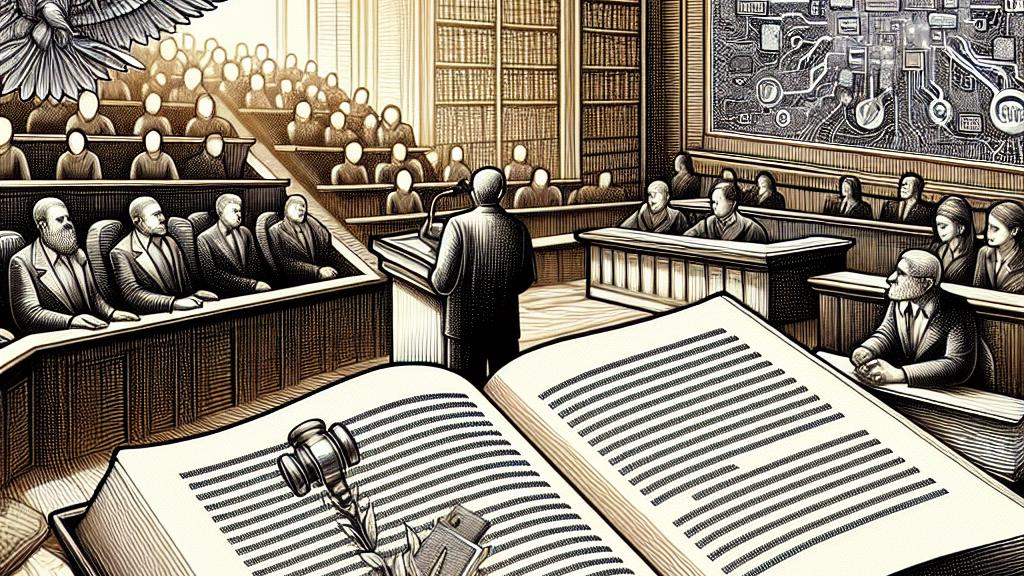Mark Zuckerberg Faces Lawsuit Over Copyright Issues in AI Development
Overview
- Meta's CEO is caught in a high-stakes lawsuit regarding copyright violations.
- Claims detail the use of unauthorized content in training the Llama AI.
- The verdict could redefine the balance of power in AI ethics versus copyright laws.

Introduction to the Controversy
In the vibrant tech hub of Silicon Valley, a significant legal battle is erupting that could have widespread ramifications. Mark Zuckerberg, the CEO of Meta, is facing serious allegations stemming from the use of copyrighted works in the development of their AI, Llama. A group of American authors has filed a lawsuit asserting that their literary creations, including bestsellers and important scholarly texts, were incorporated into Llama's training data without permission. This case, unfolding in the Northern District of California, not only puts Meta's practices under scrutiny but also highlights the pressing clash between technological innovation and the protections afforded to original content creators.
The Allegations Against Meta
The lawsuit presents a striking accusation: Meta is alleged to have engaged in systematic copyright infringement by utilizing materials without the required authorization. Imagine a world where your favorite novels and pivotal research papers were harvested anonymously to fuel cutting-edge AI technology. Whistleblowers within Meta have claimed that copyright information was deliberately removed from the datasets used for Llama's development, raising eyebrows and stirring controversy. Furthermore, insiders revealed the reliance on sites like Library Genesis—a known contributor to the distribution of pirated content—which paints a troubling picture of ethical responsibility. In essence, the authors argue that while Meta pushes the boundaries of AI, it's at the expense of those who craft the very stories and knowledge that fuel this innovation.
Legal Implications and Broader Impact
The implications of this case go far beyond the courtroom, demanding a reevaluation of how the tech sector intersects with copyright law. As AI technology accelerates, the definitions of fair use and content ownership become distressingly vague. If the lawsuit succeeds, it could usher in a new era where creators are better protected and compensated for their work. On the other hand, a ruling favoring Meta may embolden other companies to sidestep copyright issues, posing a constant threat to intellectual property. This lawsuit not only beckons a potential legal shift but also urges society to reconsider the ethics surrounding the use of content in AI training, reflecting broader societal values about creativity, ownership, and the responsibility of tech firms.

Loading...